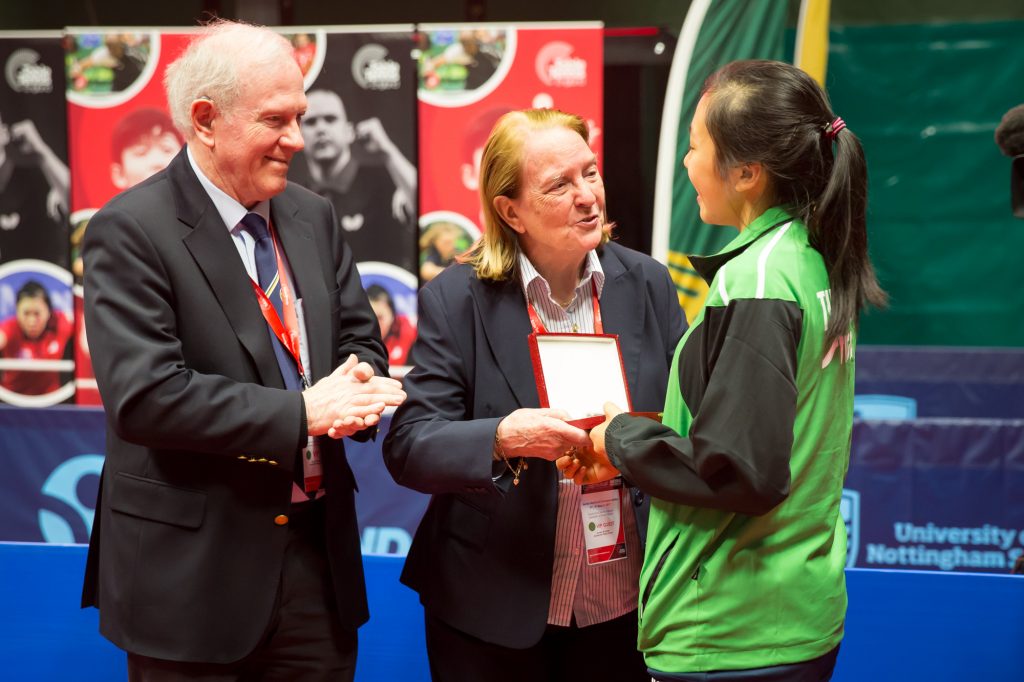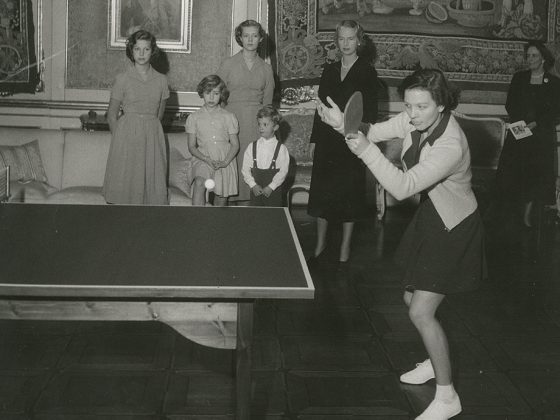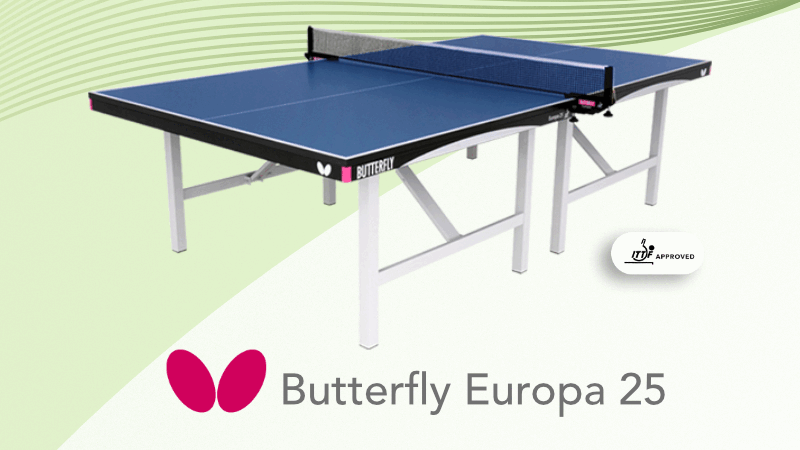Two excited 14-year-old twins woke up on Christmas morning 1947 hoping they were going to get bikes as their present so they were a little disappointed when they received table tennis bats. The disappointment didn’t last long as the two teenagers, right-handed Rosalind ‘Ros’ and left-handed Diane ‘Di’ were soon hitting a ball backwards and forwards across the dining room table.
It would have seemed inconceivable on that Christmas morning that less than three years later they would be world champions for the first time and on 14th April 1954, on their 21st birthday, a second world title was added.
So, today, we pay tribute to a remarkable lady who not only reached the pinnacle of playing but maintained a lifelong love and passion for the game and to which she gave so much back.
Back to 1947 where the dining room table and other furniture looked in jeopardy from the two girls and it wasn’t long before Dad bought a table tennis table and set it up in a spare room. Ros and Di practised and prasticed for hours, they soon joined a local club where they began to beat not only other girls but the boys as well.
The famous West Ealing Club beckoned where top international player and coach, Ken Craigie, took them under his wing and trophies soon started appearing on the mantlepiece. Ros was the first when she beat Di in the West Middlesex Junior Championships in 1949 but they were both taking the tournament circuit by storm, winning senior as well as junior titles in singles and doubles.
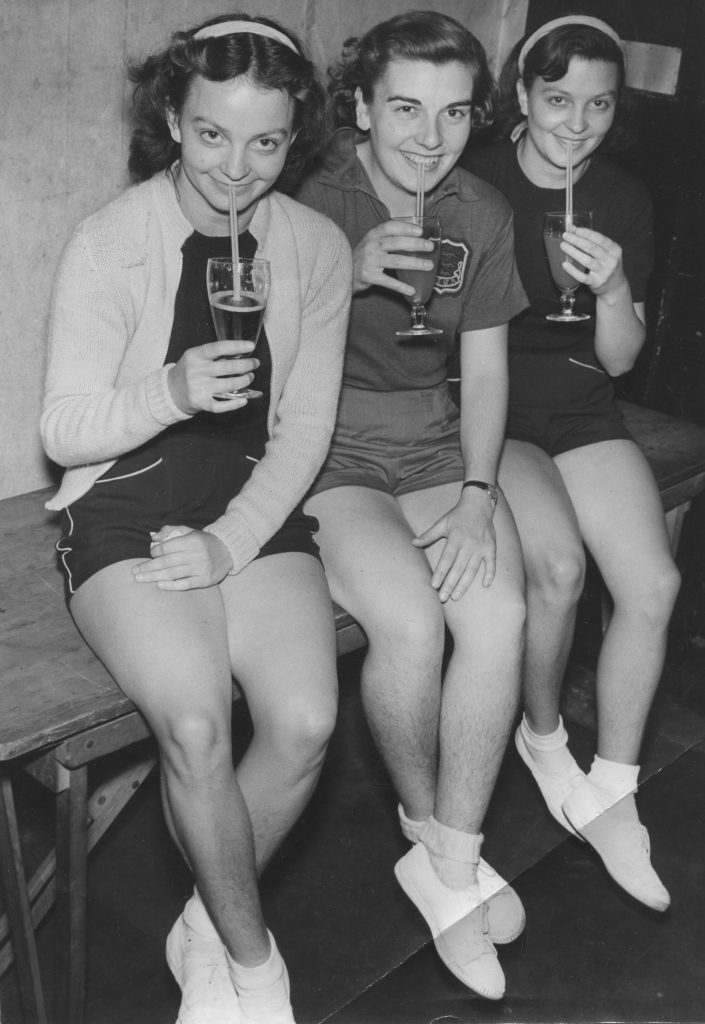
Ros was the first to be capped for England when she was selected to play in Czechoslovakia in November 1949 at the tender age of 16. Not to be outdone, Di soon followed and also had a major success when she won the Daily Mirror tournament in April 1950 in both the Girls’ and Women’s Singles events. The finals were played at the Royal Albert Hall in front of 4,500 spectators including Prince Edward, Duke of Kent, and television cameras. As a result of the wins, Di was entitled to free coaching and so Victor Barna became her coach – she, of course, took Ros along as well.
The improvement in their game was significant, bearing in mind they were already very good players, they moved up a level. Before they were 18 the pair had toured Belgium, Holland and France and were chosen to represent England at the World Championships in Vienna in 1950.
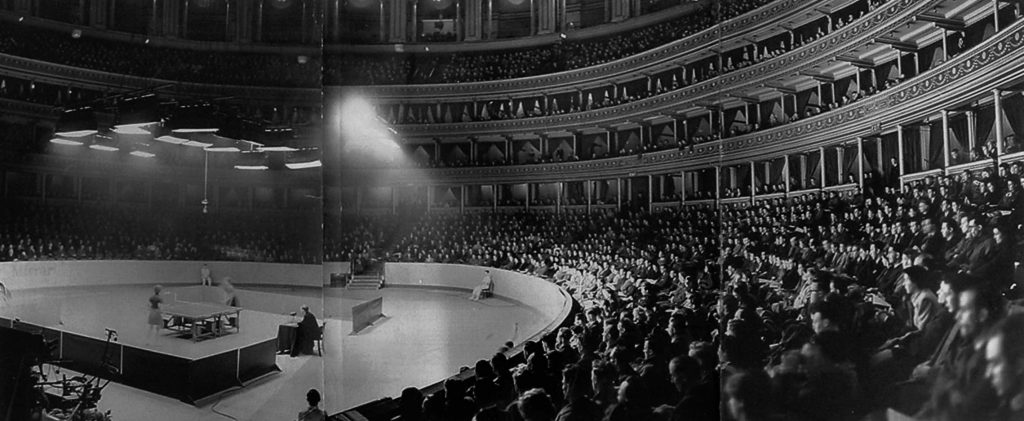
It was a magical Championships for England as first Johnny Leach won the Men’s Singles, beating Ivan Andreadis of Czechoslovakia in the final. Then it was Di and Ros’s turn. In their first World Championships they had reached the final of the Women’s Doubles and were facing two of the best players in the world, Romanians Angelica Rozeanu and Sari Szasz.
What a match it was – Di and Ros won the first game 22-20 but lost the second 20-22, the third went their way 21-19 but the fourth saw the score levelled 24-22. All to play for in the fifth game which turned out to be the easiest of all as they won 21-13. Incredible scenes followed.
The Rowe twins were feted not only in England but around the world, they were true superstars of the 1950s and invitations came pouring in. A very official one invited them to play an exhibition match before the Swedish Royal Family in 1951. Prince Gustav, now the King of Sweden, who was then four years old went scrambling around the sumptuous room retrieving balls wherever they ended up.
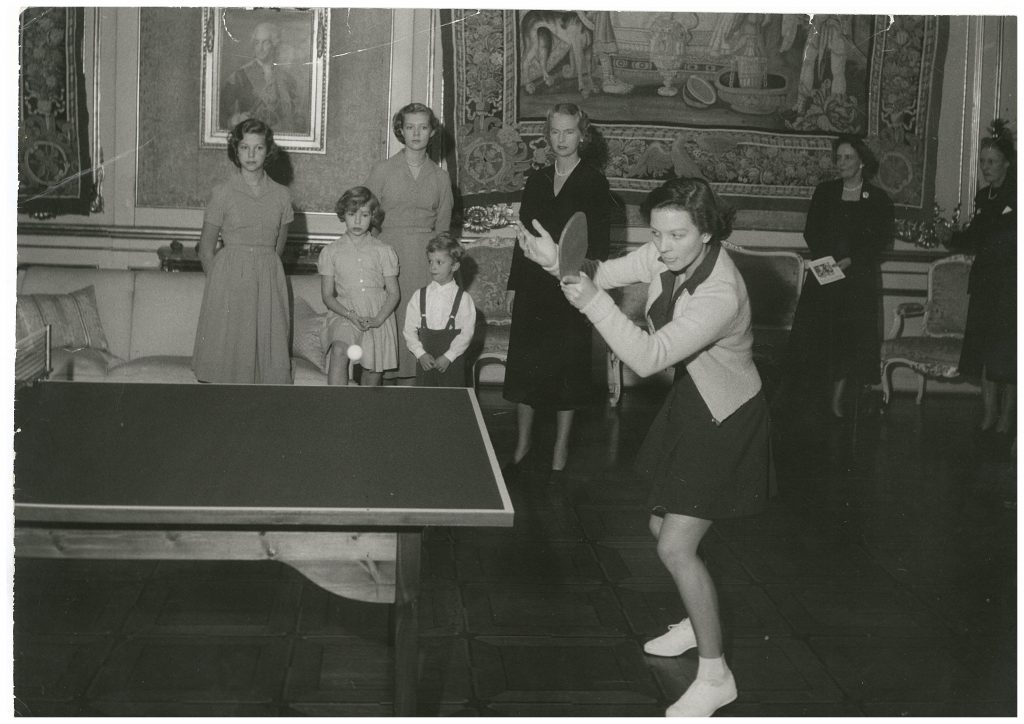
Another remarkable tour was three months spent in New Zealand and Australia in 1953. The twins left England on 7th May and arrived back on home soil on 7th September, not only three months in the two countries but two long sea voyages as well. It was the sea journey home that changed both Ros and Di’s lives as Ros met her future husband en route. She married in 1955 and retired from play shortly after.
Di and Ros’ second world title came in 1954 at the Empire Pool and Sports Arena, Wembley and it was an all England final with Kathy Best and Ann Haydon the opponents. The score -19, 10, 19, 20 to Di and Ros to hold aloft the W J Pope Trophy for the second time, presented by the Dowager, Lady Swaythling.
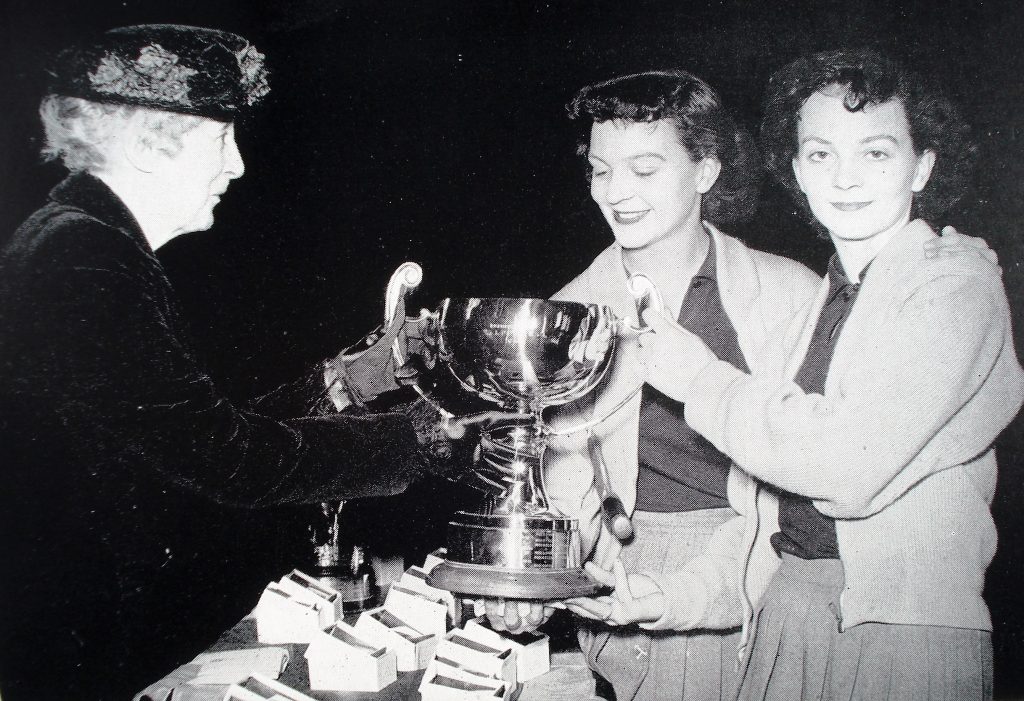
Di made more than 400 appearances for England, won two gold world championships medals, eight silver and 10 bronze. She was a member of the England team which won the first European Championships Women’s Team title and went on to win again in 1964/65, she also won the Women’s Doubles twice with Mary Shannon/Wright, with whom she formed a world class partnership. She added five silver and five bronze medals to her collection.
Di also won 19 English Open titles as well as innumerable foreign Opens. In the first English Closed (now named the National Championships) she won the treble of Women’s Singles, Women’s Doubles with Jill Rook/Mills and Mixed Doubles with Johnny Leach. She won 13 titles altogether before playing in and for Federal Germany following her marriage to Eberhard ‘Ebby’ Schöler, the top world-class German international. They married in 1966 and she moved to Dusseldorf, where she still lives.
When she stopped playing competitively, Di turned to coaching before following in the footsteps of her former coach and mentor, Victor Barna, as President of the Swaythling Club International (SCI). She held that position for many years before being elected as Honorary President.
Di has received many honours and accolades over the years: the ITTF Merit Award in 1993, the ETTA’s Victor Barna Award with Ros in 1954 and again in 1955, Player Achievement Award in 1983, Vice-President in 2021 and inducted into Table Tennis England Centenary Hall of Fame in 2022. The ETTU honoured Di when she was inducted into their Hall of Fame in 2016, she was also made a Vice-President of the International Club of England in 1964 and the Veterans English Table Tennis Society in 1987. Sadly, her twin sister Ros passed away in 2015.
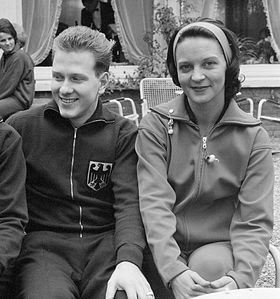
It is over 75 years since Di first held a bat in her hand and since that time, she has been a player, a captain, a coach, a world, European and national champion and a superb role model. I am sure you will all join me in wishing Diane Schöler a very happy 90th birthday.
A wonderful life and one for which we give thanks – and thank goodness the twins never received those bikes back in 1947!
